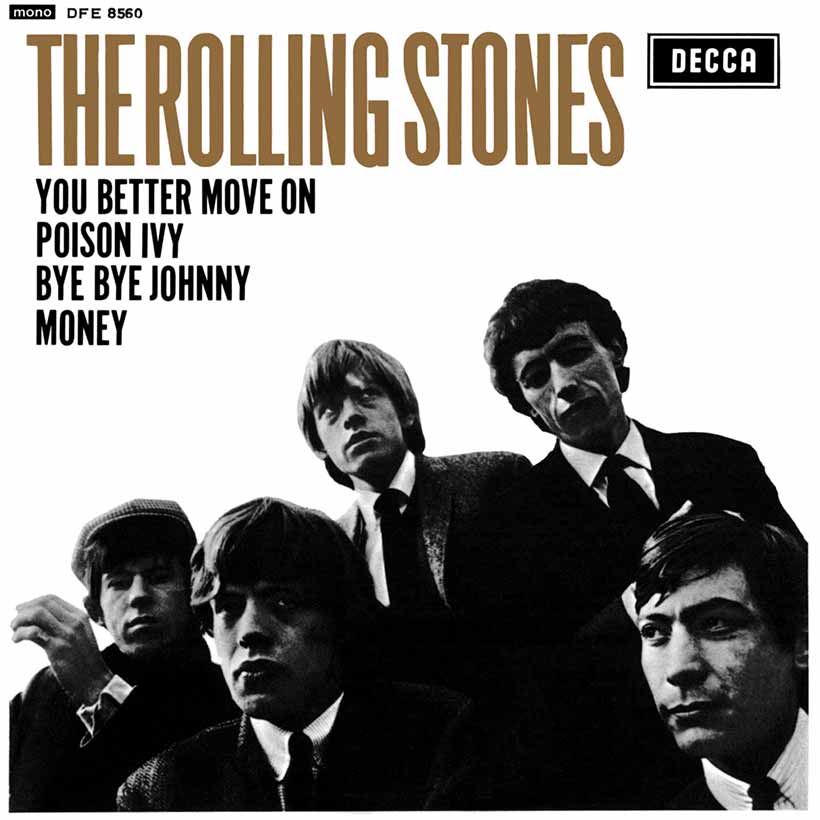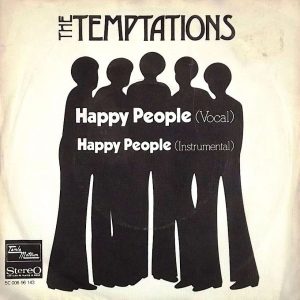A few days into their first tour as headliners, The Rolling Stones released their self-titled debut EP on January 10, 1964. For the chart week dated January 18, it entered the dedicated EP listings, going on to top that chart for the first time on February 8. Of the year it spent on the EP chart, the disc remained at the top spot for 14 weeks, and has the honor of being the group’s first No.1 record. On the day it entered the charts, The Rolling Stones were playing Hastings Pier.
Listen to The Rolling Stones’ self-titled debut EP on Spotify.
The liner notes of the EP were an interesting insight into how Decca viewed their young protégés: “Their approach to their music is far closer to the brash, hard-driving Chicago style rhythm and blues than the majority of the groups currently riding the beat wagon, and it is probable this refusal to compromise their music to match the ‘current sound’ that has gained them their legions of fans. Their performances have an honesty and power about them that makes those of their contemporaries look insipid. Much of their material will rattle the chord of memory in those who were studying the field of pop music some five years or so ago, for many of the better numbers are now enjoying a resurgence of popularity…. Whichever way the present musical trends develop, the Stones are likely to stay in there swinging at the top with their uniquely refreshing contribution to popular music.”
The four tracks on the EP are Chuck Berry’s “Bye, Bye Johnny;” Motown’s first hit, written by Berry Gordy and Janie Bradford, “Money;” Arthur Alexander’s “You Better Move On;” and Leiber and Stoller’s “Poison Ivy” – songs they had been playing at gigs through much of 1963, especially the first track on side 2. As Mick put plainly at the time, “We’ve been using ‘You Better Move On’ in our act for ages and it has always gone down well; that’s why we decided to record it.” “Bye Bye Johnny” and “You Better Move On” had been recorded on August 8, 1963, at Decca Studios, West Hampstead, while the other two date from November 14 and a session at De Lane Lea Studios in London’s Kingsway.
Journalist Roy Carr said, “Without doubt, it was ‘You Better Move On’ alone that was responsible for catapulting this EP into the best-selling singles chart. Had it been released as a single, it may have well reached the very top.”
Ten days after The Rolling Stones released the EP, a Southend band, The Paramounts, also released a version of “Poison Ivy” which hung around the lower reaches of the chart for 7 weeks, getting to No.35 on the UK singles chart. The Paramounts included Robin Trower on guitar, Chris Copping on bass, B.J. Wilson on drums, and Gary Brooker on piano and vocals. (They would later morph into Procol Harum.) “Money,” meanwhile, got as high as No.14 on the UK singles chart for Bern Elliott and the Fenmen in December 1963.
Follow The Rolling Stones’ Best Of playlist for more of their career-defining hits.




